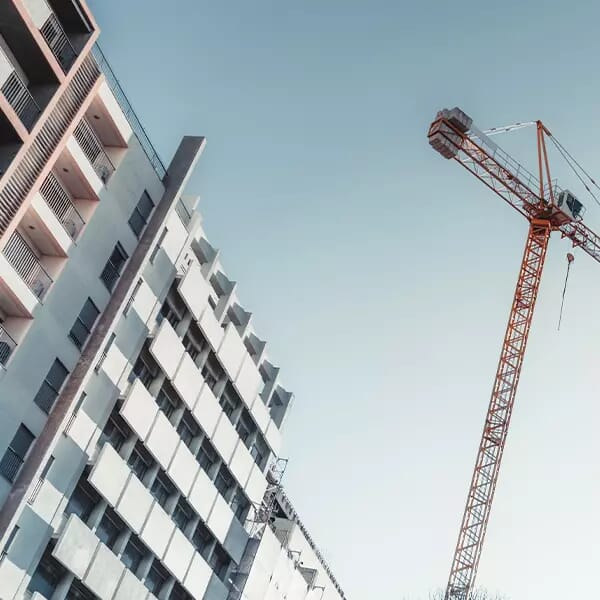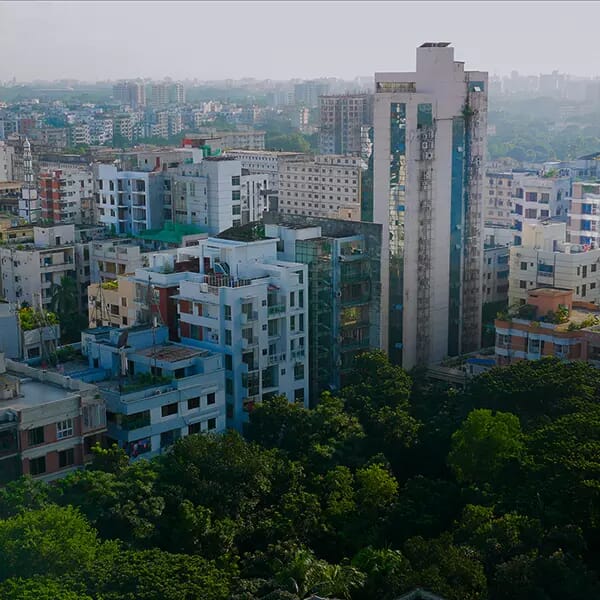 Credit: Photocreo/ Envato
Credit: Photocreo/ EnvatoBerlin: Expropriation could cause high rental prices
The 2021 Berlin referendum was passed and could change the scenario for the worst
September 30, 2022Real Estate
Last year, Berlin asked voters if they approved of the expropriation of the property of private real estate companies with 3,000 or more units in the city, through public purchases by the Berlin state government. The voters responded “yes”. It’s almost one year now and this has not changed anything yet. And, if they go ahead with expropriation, it could affect the market in a negative way.
“The Berlin Senate has appointed a committee that is currently examining the realisation of a possible expropriation. But there is no outcome to expect over the next month”, explains Dr Lars Vandrei, from Catella Residential Investment Management.
If the referendum is enacted as a new law, it would affect 243.000 rental apartments out of a total of 1,5 million apartments in Berlin. Deutsche Wohnen, for which the initiative is named, is the largest real estate company, followed by Vonovia and 12 others.
“If expropriation were indeed to occur in Berlin, we would classify the markets of those cities as riskier, to which the debate might be transferred”, said Dr Vandrei.

He remembers that there was a time in the past when the city had to sell its residential portfolio: “In general, the state as a shareholder or entrepreneur proved to be bad and weak in the past. Most of the houses were in bad condition and had to be refurbished, as the city of Berlin never invested anything. Firstly, the portfolio was sold because the city wasn’t able to provide active asset management; and secondly, to improve the financial treasury of the city.”
In the same tone, Dr Vandrei explains how this would affect the market in a bad manner:
“Expropriation would discourage investors and thus reduce construction activities and supply. At the same time, demand for housing would tend to increase somewhat, as the residents of the affected apartments would have a higher inhibition threshold to move out of the apartments, even if they might have moved to another city under other circumstances”, he said.
“New leases in the unregulated segment are thus likely to become even more expensive. For existing apartments, where prices are regulated in the so-called ‘Mietpreisbremse’ (rental control), both new leases and price increases in existing contracts depend on local rent levels. These local rent levels would fall as a result of expropriation. However, this would further increase the pressure on the markets”, concludes Dr Vandrei.
Speaking of ESG and property standards, Waidhass says: “With the residential portfolio back to the city of Berlin, it is feared that there won’t be any investments in the future. And neither will they maintain the existing standards nor get the properties to ESG/environmental critical standards”.

He also critiques this regulation of the residential real estate market as a problem for investments:
“These instruments will more or less prevent investments in the long run and thus ensure that quality of life will decline. All of these measures are short-term political measures undertaken by left-wing political parties, which will invariably lead to a lower standard of living in the long run.”
Written by Gabriela Colicigno
“The Berlin Senate has appointed a committee that is currently examining the realisation of a possible expropriation. But there is no outcome to expect over the next month”, explains Dr Lars Vandrei, from Catella Residential Investment Management.
If the referendum is enacted as a new law, it would affect 243.000 rental apartments out of a total of 1,5 million apartments in Berlin. Deutsche Wohnen, for which the initiative is named, is the largest real estate company, followed by Vonovia and 12 others.
“If expropriation were indeed to occur in Berlin, we would classify the markets of those cities as riskier, to which the debate might be transferred”, said Dr Vandrei.

Why is it a bad movement?
For Robert Waidhass, from Heureka Development, “this referendum is the worst of what could happen in a free capitalist economy. It is the result of political actionism and will lead to worse housing conditions in the long run.”He remembers that there was a time in the past when the city had to sell its residential portfolio: “In general, the state as a shareholder or entrepreneur proved to be bad and weak in the past. Most of the houses were in bad condition and had to be refurbished, as the city of Berlin never invested anything. Firstly, the portfolio was sold because the city wasn’t able to provide active asset management; and secondly, to improve the financial treasury of the city.”
In the same tone, Dr Vandrei explains how this would affect the market in a bad manner:
“Expropriation would discourage investors and thus reduce construction activities and supply. At the same time, demand for housing would tend to increase somewhat, as the residents of the affected apartments would have a higher inhibition threshold to move out of the apartments, even if they might have moved to another city under other circumstances”, he said.
“New leases in the unregulated segment are thus likely to become even more expensive. For existing apartments, where prices are regulated in the so-called ‘Mietpreisbremse’ (rental control), both new leases and price increases in existing contracts depend on local rent levels. These local rent levels would fall as a result of expropriation. However, this would further increase the pressure on the markets”, concludes Dr Vandrei.
Speaking of ESG and property standards, Waidhass says: “With the residential portfolio back to the city of Berlin, it is feared that there won’t be any investments in the future. And neither will they maintain the existing standards nor get the properties to ESG/environmental critical standards”.

He also critiques this regulation of the residential real estate market as a problem for investments:
“These instruments will more or less prevent investments in the long run and thus ensure that quality of life will decline. All of these measures are short-term political measures undertaken by left-wing political parties, which will invariably lead to a lower standard of living in the long run.”
Written by Gabriela Colicigno



